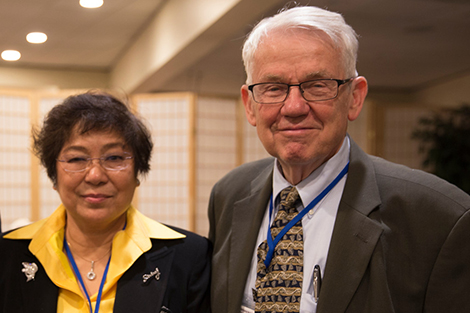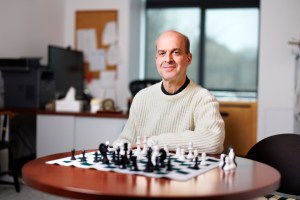Celebrating the legacy of Thailand’s ‘Father of Public Health and Modern Medicine’

Cholthanee Koerojna of the King of Thailand Birthplace Foundation (left) with Joseph Brain, Cecil K. and Philip Drinker Professor of Environmental Physiology/ Photo by Sarah Sholes
One hundred years ago, a young member of the Thai royal family gave up a promising military career to devote himself to the health and well-being of his people. As part of his new plan, Prince Mahidol Adulyadej of Songkla came to the U.S. to study public health at the Harvard-MIT School for Health Officers (as the Harvard T.H. Chan School of Public Health was originally known).
On Aug. 25, 2016 a symposium was held to honor the Prince’s contributions to public health and medicine in his country and to highlight the progress Thailand has made in public health and medicine over the past century, including improving drinking water, sanitation, and nutrition, and continuing more recently with adoption of universal health coverage in 2002. The event, held at the Francis A. Countway Library of Medicine, was co-sponsored by Harvard Chan School, Harvard Medical School (HMS) and the King of Thailand Birthplace Foundation (KTBF).
Prince Mahidol earned a certificate in public health from Harvard in 1921 and later returned to Boston to study at HMS, where he earned his M.D. cum laude in 1928. Throughout his studies, he preferred to be known as “Mr. Songkla,” and kept his royal identity a secret from classmates.
While at Harvard, the Prince negotiated an agreement with the Rockefeller Foundation to provide funding for education in medicine, nursing, and public health in Thailand. Upon his return home, he presided over substantial upgrades to science and medical facilities in Thailand’s universities and implemented national public health policies.





